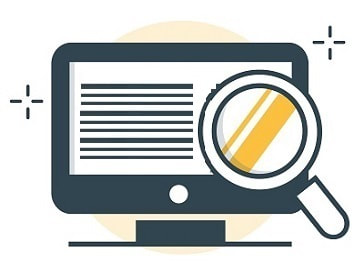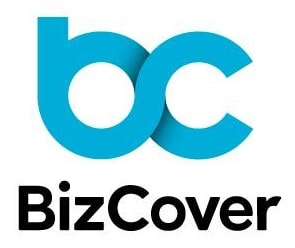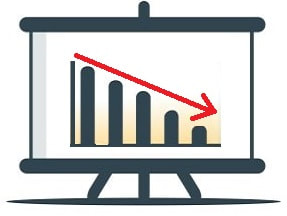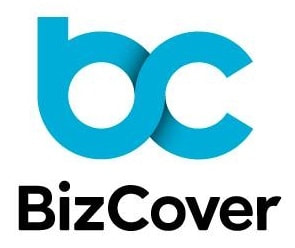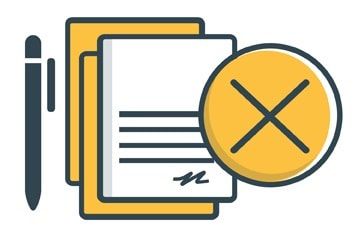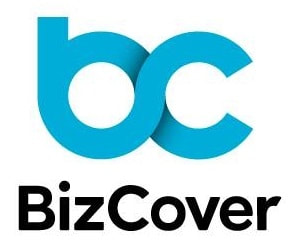Professional Indemnity Insurance - The Definitive New Zealand Guide
Our guide covers cost factors, high-risk industries, alternatives, claim handling, denial reasons, FAQs, and a list of insurers offering coverage for claims arising from professional errors, omissions, or negligence
Updated 20 July 2024
Summary:
Professional Indemnity Insurance eliminates the financial risk should a qualifying claim be made against you. To help you make an informed decision about buying a policy, our guide covers:
Important: Insurers offering Professional Indemnity Insurance:
- Professional Indemnity Insurance is a type of coverage designed to protect professionals and their businesses against claims arising from errors, omissions, or negligence in providing professional services.
- For example, such claims could result from miscommunication, incorrect advice, or failure to deliver services as promised, causing financial losses or reputational damage to clients.
- The primary objective of a policy is to safeguard your professional reputation and financial stability by covering legal defence costs, settlements, and any awarded damages, allowing you to focus on your business rather than being consumed by litigation concerns.
- A 2022 Christchurch case of an allegedly negligent engineer and $19m of estimated losses raised the importance of having professional indemnity insurance. The process is simple - if you make a mistake and are sued and you don't have insurance, you'll have to pay the legal costs and the claimants will go likely after your personal assets (e.g. your home) as compensation. Sometimes, as outlined in another 2022 case about a Nelson lawyer who was sued for negligence, didn't have professional indemnity cover and had to pay the $50,000 settlement out of pocket.
- Key benefits of Professional Indemnity Insurance include coverage for defence costs, settlements, court-awarded damages, and protection against the potential loss of clients' trust and confidence. However, insurers don't always accept a claim, as this Stuff.co.nz article from 2019 explains. Refusal by an insurer to cover was also a factor in the legal action against former Invercargill Mayor Tim Shadbolt in 2018.
- Some policies may offer extended coverage for defamation, intellectual property infringement, or breach of confidentiality. Additionally, separate specialist policies are available to address specific risks unique to certain professions or industries.
- It is important to note that policies vary, and not all types of claims or circumstances are covered; coverage has exclusions and limitations. Therefore, it is crucial to review your policy documents carefully and consult with your insurer or insurance broker to ensure you have the appropriate protection for your specific professional risks.
Professional Indemnity Insurance eliminates the financial risk should a qualifying claim be made against you. To help you make an informed decision about buying a policy, our guide covers:
- Understanding What Influences the Cost of Professional Indemnity Insurance Policies
- What Businesses are at Higher Risk of Needing Professional Indemnity Insurance?
- Professional Indemnity Insurance Alternatives
- How is a Claim Handled? When Will the Insurer Step In and Help?
- Reasons Why a Professional Indemnity Insurance Claim May Be Denied
- Frequently Asked Questions
Important: Insurers offering Professional Indemnity Insurance:
- We have grouped insurers into online quotes (insurers and brokers), offline insurers and offline brokers. While we prefer online quotes, the reality is many insurers offering Professional Indemnity policies are less dynamic than insurance for cars, homes and contents etc. "Offline" means you'll need to submit your details and then wait for a representative of the insurer or broker to contact you with a quote for your business.
- Online quotes: BizCover
- Offline brokers and insurers: Apex Insurance, Rothbury, Aon, Chubb, Steadfast, Vero and Crombie Lockwood
- Associations and professional bodies: Chartered Accountants ANZ, Engineering NZ, NZ Nurses Organisation, NZ Psychological Association, College of Nurses Aotearoa and Physiotherapy NZ, among others.
MoneyHub Founder Christopher Walsh shares his views on choosing a Professional Indemnity Insurance policy:"Acquiring quotes for professional indemnity insurance is essential. Every business has distinct requirements and situations, functions differently, and possesses unique risks and liabilities; prices will fluctuate based on your specific needs.
Our analysis demonstrates that policies differ - some may only cover certain types of professional errors or omissions, while others may offer more comprehensive coverage at a higher expense. Furthermore, some businesses also require specialized protection - the liability for a mistake is unlimited, and the costs can wipe you out financially. New Zealanders are not afraid to litigate, and one simple mistake in an ordinary day of work can leave you $50,000+ out of pocket if someone claims and a court decides against you. To obtain precise quotes, you must be as detailed as possible during the quoting process. Online quotes can be procured from multiple insurers; most websites transition to traditional brokerage. We have provided various alternatives to simplify the quote acquisition process to help you find the right policy for your needs. Regardless of your decision, if you choose to purchase a policy, ensure that the coverage limit is suitable for your business - under-insuring can have significant financial repercussions, as a limit on financial protection and assistance can hinder the recovery of your business in the event of a claim". |
Christopher Walsh
MoneyHub Founder |
Explore Your Professional Indemnity Insurance Options with Our Trusted Partner BizCover
|
Finding the right Professional Indemnity Insurance is crucial for safeguarding your business against unforeseen professional risks. That’s why we’ve partnered with BizCover to make comparing and choosing insurance that fits your unique needs easier. BizCover offers features such as:
We understand the importance of having the right coverage. Visit BizCover and start your journey towards securing peace of mind for your business today. Advertising Disclaimer: MoneyHub may earn a referral bonus for policies purchased through BizCover links. Our commitment to providing independent, thorough research remains our priority, and our recommendations are uninfluenced by these partnerships. Please see our Advertising Policy for more details about how we make money. |
Understanding What Influences the Cost of Professional Indemnity Insurance Policies
Several factors can influence the cost of Professional Indemnity Insurance:
Know This: With 2,000+ professions and other data points driving quotes, you'll need to be as specific as possible with your business information to get the best possible pricing - no profession or business is alike, and the quotes reflect this.
- The size and type of profession or business: Premiums can vary depending on the size and type of profession or business. For example, a large engineering firm may pay more for coverage than a small graphic design studio.
- The nature of services provided: Professions that involve higher levels of risk, complexity, or potential liability may have higher premiums.
- The coverage level: The coverage you choose will also influence the cost of your policy. A policy with higher coverage limits typically has higher premiums than a policy with lower limits.
- The excess: A policy with a higher excess may have lower premiums, but it's important to consider the potential impact of the deductible on your business if you need to file a claim.
- The claims history of the business: Businesses or professionals with a history of frequent or costly claims may pay higher premiums.
- The experience and qualifications of professionals: Highly experienced and qualified professionals may be perceived as lower risk, potentially resulting in lower premiums.
Know This: With 2,000+ professions and other data points driving quotes, you'll need to be as specific as possible with your business information to get the best possible pricing - no profession or business is alike, and the quotes reflect this.
What to look for in a Professional Indemnity Insurance policy:
When comparing Professional Indemnity Insurance policies, there are a few key things to consider before deciding on a policy:
By carefully considering these factors, you can find a Professional Indemnity Insurance policy that provides the appropriate protection for your business while minimizing potential coverage gaps and addressing your unique professional risks.
- Coverage limits: The maximum amount the insurance company will pay for a covered claim; ensure that the coverage limits are sufficient to protect your business from potential financial losses arising from professional errors or omissions.
- Retroactive date and policy continuity: The retroactive date is the point in time from which the policy provides coverage for prior acts. Make sure the retroactive date is set appropriately, and maintain continuous coverage to avoid potential gaps in protection.
- Scope of coverage: This includes the types of professional services and activities covered by the policy. Ensure that the policy covers the full range of services your business provides.
- Covered events and exclusions: Understand what events or circumstances are (and are not) covered by the insurance policy. Review the exclusions carefully to ensure you're aware of any limitations or restrictions on coverage.
- Legal defence costs: Some policies cover legal defence costs in addition to the policy limits, while others include them within limits. Determine whether the policy provides adequate coverage for legal defence costs in the event of a claim.
- The excess: The amount you will be responsible for paying out of pocket before the insurance company begins covering a claim. Consider the potential impact of the deductible on your business if you need to file a claim.
- Policy extensions and endorsements: Investigate available policy extensions or endorsements that may be beneficial for your specific profession or industry, such as coverage for contractual liability or public relations expenses.
By carefully considering these factors, you can find a Professional Indemnity Insurance policy that provides the appropriate protection for your business while minimizing potential coverage gaps and addressing your unique professional risks.
What Businesses are at Higher Risk of Needing Professional Indemnity Insurance?
Certain professionals or businesses may face a higher risk of needing Professional Indemnity Insurance due to the nature of their services, the complexity of their work, or the potential consequences of errors or omissions. However, many professional associations have guidance around getting professional indemnity insurance and may have preferred insurers. Some examples of professionals or businesses that may be at higher risk include:
- Professionals who provide expert advice or consulting services, such as financial advisors, management consultants, or engineers. These professionals may be held accountable for any financial losses or damages resulting from incorrect advice or oversight in their work.
- Businesses that handle sensitive or confidential client information, such as law firms, accounting firms, or healthcare providers. These businesses may face claims related to confidentiality, privacy, or data security breaches, which could lead to significant legal and financial consequences. Examples of associations offering policies include Chartered Accountants ANZ.
- Professionals involved in design or construction, such as architects or civil engineers. Errors or omissions in their work could result in costly damages, delays, or public safety hazards, making Professional Indemnity Insurance coverage essential for mitigating the associated risks. Examples of associations offering policies include Engineering NZ
- IT professionals and technology service providers, such as software developers, systems integrators, or IT consultants. These professionals may face claims arising from software malfunctions, data breaches, or other technology-related issues that could significantly impact their clients' businesses.
- Healthcare workers, such as nurses, physiotherapists, dentists and other specialists, may face complaints from patients. Examples of associations offering policies include NZ Nurses Organisation, NZ Psychological Association, College of Nurses Aotearoa and Physiotherapy NZ, among others.
Tips to Reduce the Cost of a Professional Indemnity Insurance
There are many ways to reduce the cost of a policy, as outlined below:
- Increase the policy excess: Opting for a policy with a higher excess can result in lower premiums. Make sure you have the financial means to cover the higher excess in the event of a claim.
- Regularly review your coverage needs: As your business evolves, reassess your coverage to ensure it reflects your current requirements and avoids over-insuring or under-insuring.
- Bundle insurance policies: Insurers may offer discounts for purchasing multiple insurance policies, such as public liability, business interruption and general business insurance. Bundling can lead to cost savings.
- Implement risk management strategies: Minimize the likelihood of claims and lower your premiums by implementing quality control measures, standardizing procedures, investing in employee training, and maintaining clear client communication.
- Maintain a strong claims history: By demonstrating that you are a low-risk business with few or no claims, you may be able to negotiate lower premiums with your insurer.
- Work with an experienced broker: A knowledgeable insurance broker can help you navigate the complex world of Professional Indemnity Insurance, negotiate the best possible rates, and find coverage tailored to your specific needs.
- Purchase through a professional association: As outlined above, some professional organizations in New Zealand offer Professional Indemnity Insurance policies to their members at discounted rates. These organizations often negotiate group insurance rates with insurers, lowering premiums. By purchasing a policy through a professional association, you can benefit from their bargaining power and access tailored coverage specifically designed for professionals in your field.
- Compare quotes from multiple insurers: Obtain quotes from different insurance providers to compare coverage options and pricing, helping you identify the most suitable and cost-effective policy for your business.
- Online quotes: BizCover
- Offline brokers and insurers: Apex Insurance, Rothbury, Aon, Chubb, Steadfast, Vero and Crombie Lockwood
Explore Your Professional Indemnity Insurance Options with Our Trusted Partner BizCover
|
Finding the right Professional Indemnity Insurance is crucial for safeguarding your business against unforeseen professional risks. That’s why we’ve partnered with BizCover to make comparing and choosing insurance that fits your unique needs easier. BizCover offers features such as:
We understand the importance of having the right coverage. Visit BizCover and start your journey towards securing peace of mind for your business today. Advertising Disclaimer: MoneyHub may earn a referral bonus for policies purchased through BizCover links. Our commitment to providing independent, thorough research remains our priority, and our recommendations are uninfluenced by these partnerships. Please see our Advertising Policy for more details about how we make money. |
Professional Indemnity Insurance Alternatives
Professional Indemnity Insurance is, arguably, a vital risk management tool that offers cost-effective protection for many professionals against potential liability claims. However, it is important to note that adopting additional risk mitigation strategies can help reduce the likelihood of facing claims in the first place. The following recommendations are intended to supplement coverage by minimizing professional liability risks rather than entirely preventing claims from arising.
- Quality management systems: Implementing robust systems can help ensure your business consistently delivers high-quality services, reducing the likelihood of negligence or errors.
- Standardized procedures and guidelines: Establishing clear, standardized procedures and guidelines for delivering professional services can minimize the risk of errors and omissions. Regularly review and update these procedures to maintain their relevance and effectiveness.
- Employee training and development: Investing in employee training and development can ensure that your staff is knowledgeable and skilled in their respective areas of expertise, reducing the likelihood of professional errors or oversights.
- Client communication and documentation: Clear and thorough communication with clients is vital to managing expectations and avoiding misunderstandings. Maintaining detailed records of client interactions, project specifications, and deliverables to ensure transparency and serve as evidence in case of a dispute.
- Risk assessment and management: Regularly conduct risk assessments to identify potential vulnerabilities in your business operations and implement appropriate risk management strategies to mitigate professional liability risks.
- Contract review and management: Review contracts and agreements to ensure they clearly outline the scope of work, responsibilities, and potential liabilities. Consider including clauses that limit your liability, such as indemnification or disclaimer clauses.
- Alternative dispute resolution: Adopting alternative dispute resolution methods, such as mediation or arbitration, can help resolve potential conflicts or client disputes without resorting to costly and time-consuming litigation.
- Self-insurance: Similar to businesses that self-insure for general risks, some businesses may set aside funds to cover potential professional indemnity claims. This option can be viable for businesses with a low risk of professional liability claims and the financial capacity to cover potential losses.
What does Professional Indemnity Insurance Exclude?
Professional Indemnity Insurance policies cover many potential claims arising from professional errors, omissions, or negligent acts. However, certain exclusions are commonly found in Professional Indemnity Insurance policies. These may include:
Important: Policies vary, and there's too much room for misunderstanding - if you're unsure about anything, ask the insurer and make sure you understand the answers provided.
- Deliberate acts or omissions: Policies won't cover any intentional, dishonest, fraudulent, or malicious acts or omissions by the insured.
- Prior knowledge: Claims arising from circumstances that the insured was aware of before the policy's inception and failed to disclose to the insurer are generally excluded.
- Contractual liability: Policies may exclude coverage for liability assumed under a contract or agreement unless the liability would have arisen in the absence of the contract.
- Bodily injury or property damage: Most policies exclude coverage for claims arising from bodily injury or property damage. These risks are typically covered under other types of insurance, such as general liability insurance.
- Fines, penalties, and punitive damages: Coverage is generally excluded for fines, penalties, and punitive or exemplary damages imposed by a court, as these are considered outside the scope of indemnification.
- Insolvency or bankruptcy: Some policies may exclude claims from the insured's insolvency or bankruptcy.
- Intellectual property infringement: Some policies may exclude coverage for claims arising from infringing intellectual property rights, such as copyright, trademark, or patent infringement.
- Employment disputes: Policies typically exclude coverage for claims arising from disputes between the insured and its employees, such as wrongful dismissal or discrimination claims.
Important: Policies vary, and there's too much room for misunderstanding - if you're unsure about anything, ask the insurer and make sure you understand the answers provided.
How is a Claim Handled? When Will the Insurer Step In and Help?
When a claim arises related to professional services, errors, or omissions, a Professional Indemnity Insurance policy may provide coverage. It's likely to be an already stressful time, but it's important to remember the policy exists to help you cover the costs of any claim. It's important to understand the claim process:
Remember that the specific claim process may vary depending on your insurer, the nature of the claim, and your policy terms. Therefore, always review your policy documents and consult with your insurer or insurance broker for guidance on your specific situation.
- Identify a potential claim: If you become aware of a situation that could lead to a claim, such as a client complaint, a mistake in your work, or a disagreement over professional services, note the issue.
- Notify your insurer: As soon as you identify a potential claim or receive a formal claim from a client, you must notify your insurer promptly. Many policies are "claims-made" policies, meaning they cover claims made and reported during the policy period. Delaying notification could jeopardize your coverage.
- Document the situation: Gather all relevant information and documentation related to the potential claim. This may include contracts, project files, correspondence, invoices, and any other evidence that helps demonstrate the nature of the professional relationship and the services provided.
- Complete a claim form: Your insurer will likely require you to complete a claim form detailing the circumstances of the claim, the parties involved, and the potential financial impact. Be as accurate and thorough as possible, and provide any supporting documentation.
- Cooperate with your insurer: Your insurer will assign a claims adjuster or handler to investigate and manage the claim. They may request additional information or documentation and potentially appoint legal representation on your behalf. It's important to cooperate fully and maintain open lines of communication throughout the process.
- Settlement or defence: Depending on the circumstances and merits of the claim, your insurer may negotiate a settlement with the claimant or defend the claim in court. Your policy will cover legal defence costs and any damages awarded up to the policy limits.
- Payment of excess: If your policy has an excess, you must pay this amount before the insurer covers the remaining costs associated with the claim.
Remember that the specific claim process may vary depending on your insurer, the nature of the claim, and your policy terms. Therefore, always review your policy documents and consult with your insurer or insurance broker for guidance on your specific situation.
Reasons Why a Professional Indemnity Insurance Claim May Be Denied
While policies can offer invaluable financial protection for professionals when a claim arises, there are circumstances where a claim may be denied. To avoid any problems later on, it's essential to understand the common reasons for denied claims can help you avoid potential issues and ensure a smoother claims process.
Know This:
- The policy did not cover the error, omission, or negligence: Policies typically list covered events and exclusions. If the claim arises from an event or circumstance not covered by the policy, your claim may be denied.
- The policy limits were exceeded: Every policy has coverage limits - the maximum amount the insurer will pay for a covered event. The claim may be denied if the losses or expenses resulting from the claim exceed the policy limits.
- The claim was not filed within the required time frame: Policies typically have deadlines for filing claims. It may be denied if you do not file your claim within the required time frame.
- The claim was not properly documented: Claims typically require documentation of the error, omission, or negligence, including correspondence, contracts, and other supporting materials. If the claim is not properly documented, it may be denied.
- The loss was due to intentional acts or dishonesty: Policies often exclude losses resulting from intentional acts or dishonesty by the insured professional. For example, the claim may be denied if the loss was caused by deliberate fraud or misconduct.
- Known circumstances were not disclosed: If you were aware of a potential claim or circumstance that could lead to a claim before the policy's inception date and did not disclose it to the insurer, the claim might be denied.
- Retroactive cover is not provided: The claim may be denied if the policy does not include retroactive cover and the claim arises from work done before the policy's inception date.
Know This:
- If your claim is denied, consider seeking advice from your insurance broker or talk to a lawyer. They can help you understand the reason for the denial and advise on the steps you can take to appeal the decision. Insurers can make errors, and a well-supported appeal may result in a favourable outcome.
- Insurers don't always accept a claim, as this Stuff.co.nz article from 2019 explains. Refusal by an insurer to cover was also a factor in the legal action against former Invercargill Mayor Tim Shadbolt in 2018.
Frequently Asked Questions
Every business is unique - the information below is general in nature and not specific to any industry or business type. If you have any questions about a policy, contact the insurer and make sure you understand the answers provided.
What is the difference between Professional Indemnity Insurance and Public Liability Insurance?
Professional Indemnity Insurance covers claims arising from errors, omissions, or negligence in providing professional services. In contrast, Public Liability Insurance covers claims for personal injury or property damage caused to third parties due to your business activities.
What is retroactive cover, and why is it important?
Retroactive cover is a feature in a Professional Indemnity Insurance policy that provides coverage for claims arising from work done before the policy's inception date. This is important as claims can sometimes arise long after the services were provided. You'll need to verify how many years or months are retroactively covered.
What is run-off cover, and do I need it?
Run-off cover is insurance that provides ongoing protection after a professional has ceased trading or retired. It covers claims arising from work done while the professional was still practising. This is important because claims can arise after the professional has stopped working.
Are legal defence costs included in a Professional Indemnity Insurance policy?
Yes - most policies include legal defence costs outside the indemnity limit. This means that the policy will cover the costs of defending a claim, even if the claim is found to be without merit.
Can I get Professional Indemnity Insurance if I have had a previous claim?
Yes, but finding an insurer willing to cover you may be more difficult, and the premiums may be higher. Some insurers may also impose exclusions or limitations on your policy.
What should I do if a claim is made against me?
If a claim is made against you, immediately notify your insurer and provide them with all the relevant information. They will guide you through the process and handle the claim on your behalf.
Can I cancel a Professional Indemnity Insurance policy if I stop practising or retire?
Yes - you can cancel your policy. However, you should consider purchasing run-off cover to protect against any future claims arising from work done while you were still practising.
Are there any exclusions in a Professional Indemnity Insurance policy?
Professional Indemnity Insurance policies may have exclusions based on specific circumstances or types of claims. Common exclusions include intentional dishonesty, fraudulent acts, and claims arising from known circumstances not disclosed when purchasing the policy. Always review your policy carefully to understand any exclusions that may apply.
How often should I review my Professional Indemnity Insurance coverage?
It's essential to review your coverage regularly, preferably at least once a year or when there are significant changes in your professional activities, business size, or the scope of services provided. This ensures that your coverage remains adequate and current with your evolving needs and potential risks.
What is an excess in a Professional Indemnity Insurance policy?
An excess is the amount you must pay towards the costs of a claim before your insurer starts covering the remaining expenses. The excess amount varies depending on your policy and can impact your premium – generally, a higher excess will result in a lower premium.
How can I minimize the risk of a Professional Indemnity Insurance claim?
To minimize the risk of a claim, adopt best practices in your profession, such as maintaining clear and open communication with clients, setting realistic expectations, providing written agreements, and keeping detailed records of your work. Regularly updating your skills and knowledge, adhering to industry standards, and implementing a robust risk management system can also help reduce the likelihood of a claim.
What should I consider when choosing a Professional Indemnity Insurance provider?
Consider the insurers' financial strength, reputation, claims handling process, customer service, and policy options. Then, comparing quotes from different providers and consulting with an insurance broker can help you find the best coverage for your needs at a competitive price.
Explore Your Professional Indemnity Insurance Options with Our Trusted Partner BizCover
|
Finding the right Professional Indemnity Insurance is crucial for safeguarding your business against unforeseen professional risks. That’s why we’ve partnered with BizCover to make comparing and choosing insurance that fits your unique needs easier. BizCover offers features such as:
We understand the importance of having the right coverage. Visit BizCover and start your journey towards securing peace of mind for your business today. Advertising Disclaimer: MoneyHub may earn a referral bonus for policies purchased through BizCover links. Our commitment to providing independent, thorough research remains our priority, and our recommendations are uninfluenced by these partnerships. Please see our Advertising Policy for more details about how we make money. |

